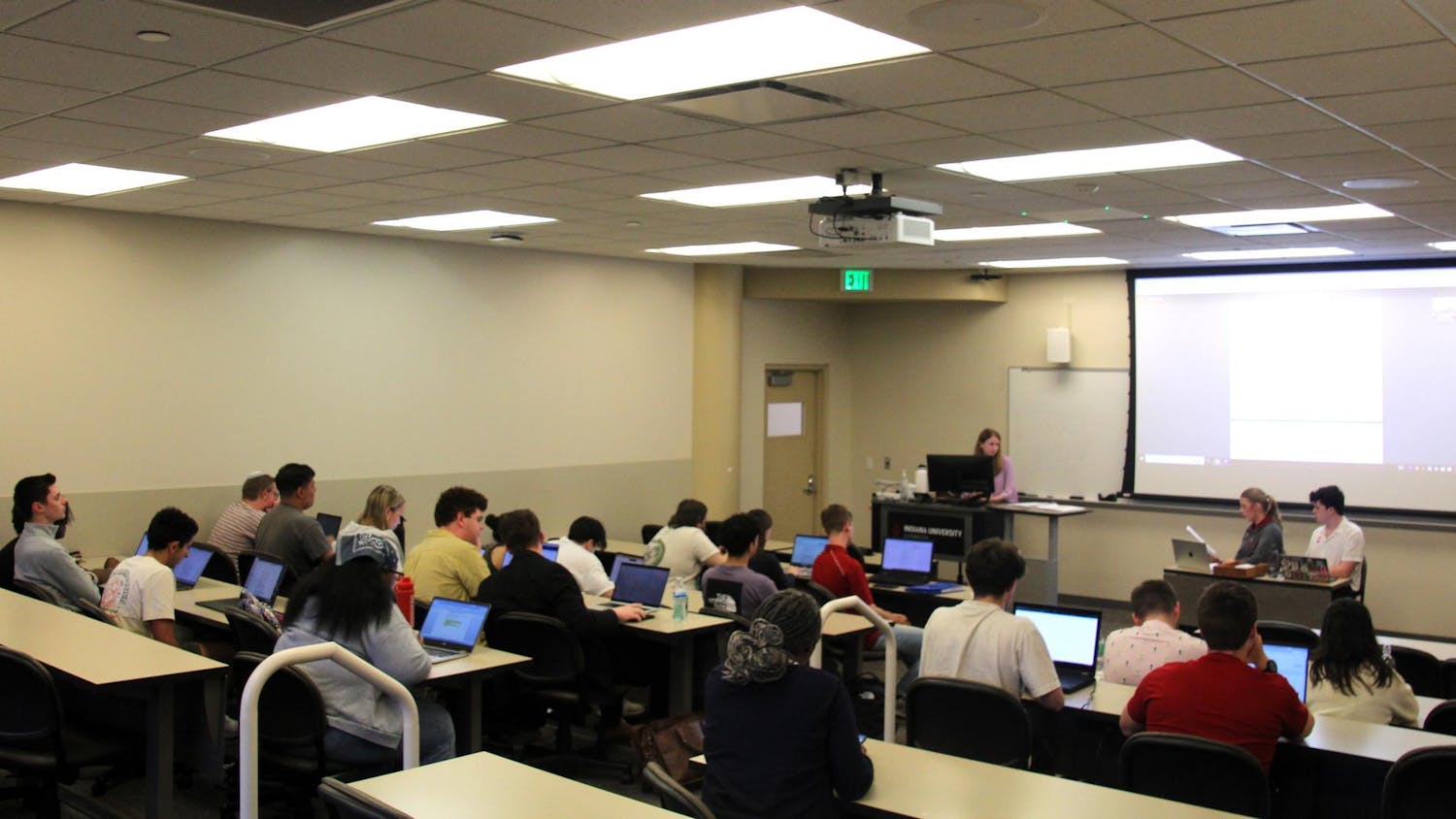Two cases of mumps are being investigated on campus, according to an email from IU Provost Lauren Robel.
The two cases are not believed to be connected and were identified two weeks apart from one another.
“IU is taking all precautions to protect its students, faculty and staff,” Robel said in the email.
Nancy Macklin, director of nursing at the IU Health Center, said she could not release personal details about the two students infected, but they have received treatment.
IU is working with the Monroe County Health Department and Indiana State Department of Health to identify and contact anyone who may have been in contact with the two students, and to prevent further transmission of mumps.
Macklin said all people who may have been in contact with the two students have received multiple emails, requesting their measles, mumps and rebuela vaccination records.
“If you did not get contacted, you do not need to worry,” Macklin said.
A known case of mumps has not been reported at IU in the last six years. However, Macklin said the two cases reported do not constitute an outbreak.
Ken Severson, media relations director for the Indiana Department of Health, confirmed in an email that eight cases of mumps were reported statewide in 2014. Reports for 2015 have not been finalized with the Centers of Disease Control and Prevention yet.
Nationally, Indiana reports fewer cases of mumps than some states that have seen large outbreaks, he said.
IU is encouraging University members to check vaccination records and is advising community members to educate themselves on symptoms, transmission and prevention.
Robel said in the email students showing symptoms, regardless of their vaccination status, should stay home and immediately call the IU Health Center before arriving for treatment.
“We know it’s hard for students, but do the best you can to eat right, sleep right and avoid stress,” Macklin said.
While Severson said high concentrations of people in close contact with one another make university settings more susceptible for the transmission of infectious diseases like mumps, he said achieving a high rate of vaccination, conducting appropriate follow-ups with potential contacts and quickly identifying and treating those infected can help limit the spread of the virus.
“The two cases at IU were identified quickly, and the follow-up has been rigorous,” Severson said. “Additionally, we hope that notifying the campus community will help prevent spread by ensuring individuals are aware of symptoms and know what they can do to protect themselves.”
Mumps is a respiratory disease spread by close contact within a range of three feet, Macklin said.
Citing the Centers for Disease Control and Prevention, Robel identified fever, headache, muscle aches, tiredness and loss of appetite as symptoms. Mumps can also be characterized by tender salivary glands under the ears on one or both sides.
According to Robel’s email, mumps are spread mainly through sneezing and coughing. The infection can spread any time from two days before symptoms appear and five days after the symptoms’ onset.
Mumps’ symptoms typically do not appear until 16 to 18 days after infection, and because mumps is a “mild illness,” some infected by the virus may not experience any symptoms, according to the email.
Macklin said the virus does not live outside the body very long and serious issues and complications from the infection are rare, with only a 1 to 3 percent rate, according to the email.
The best way to prevent mumps is to be vaccinated with two doses of the measles, mumps and rubella vaccine. However, those who have been vaccinated can still contract the virus. The vaccine is only considered to be about 80 percent effective.
“The MMR vaccine is the best prevention possible,” Macklin said. “But it is not a perfect vaccine.”
Given the low number of cases reported, Severson said there is a relatively low risk of transmission from day-to-day activities.
He added most cases of mumps reported in the United States have unknown sources of transmission and can be contracted via out-of-state sources or international travel.
“Vaccination is the best way to protect from mumps,” Severson said. “We would highly recommend students who are traveling, especially internationally, to check the recommendations for their destinations and ensure they have the appropriate vaccines.”
Students are encouraged to contact the IU Health Center at 812-855-5002 during office hours, or at 812-330-3790 after hours, if symptoms are believed to be present.






